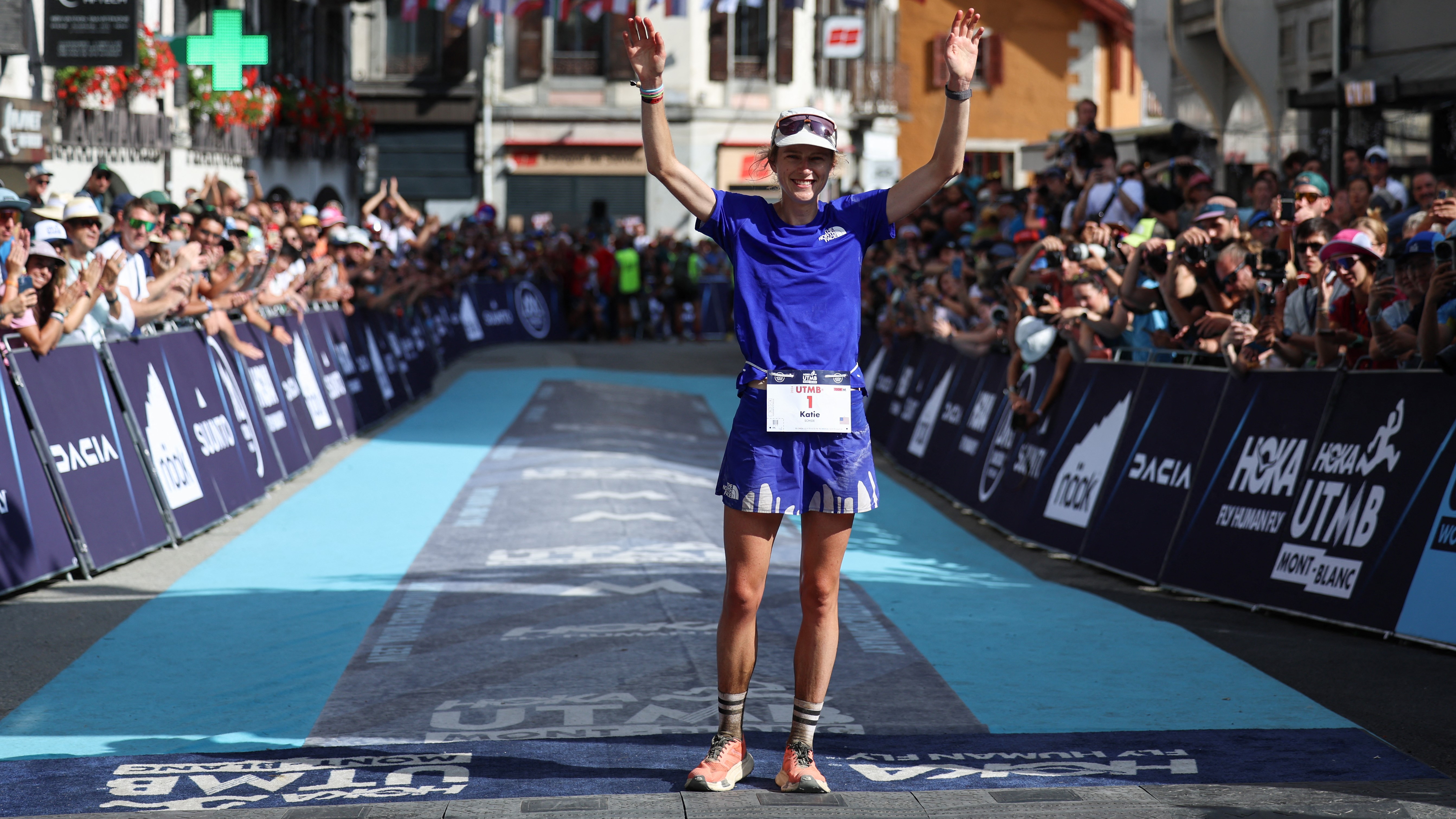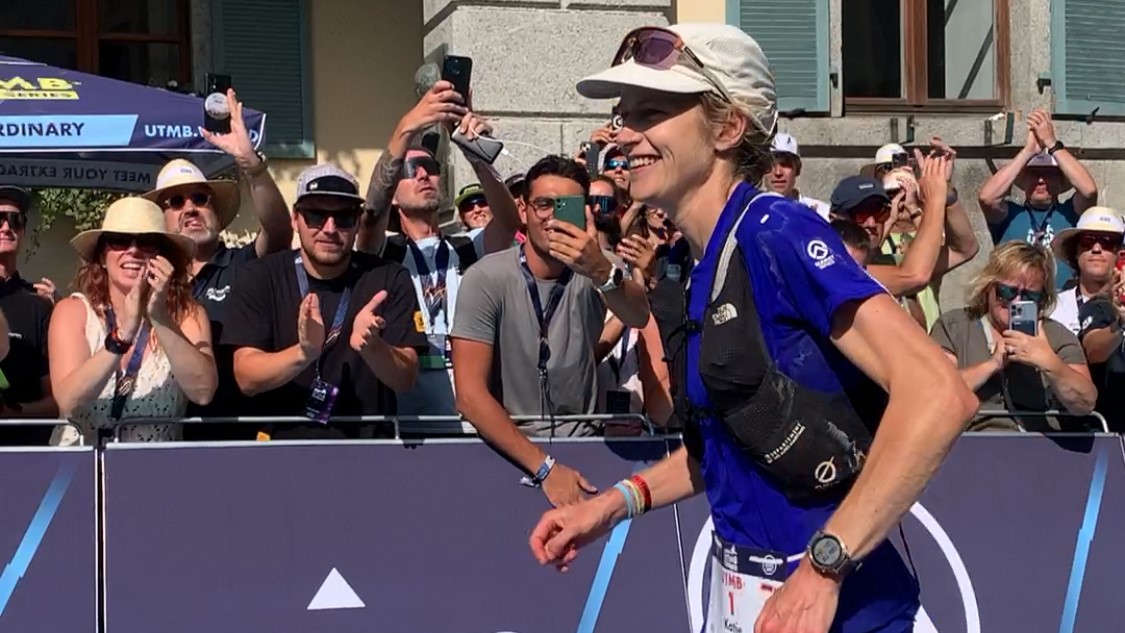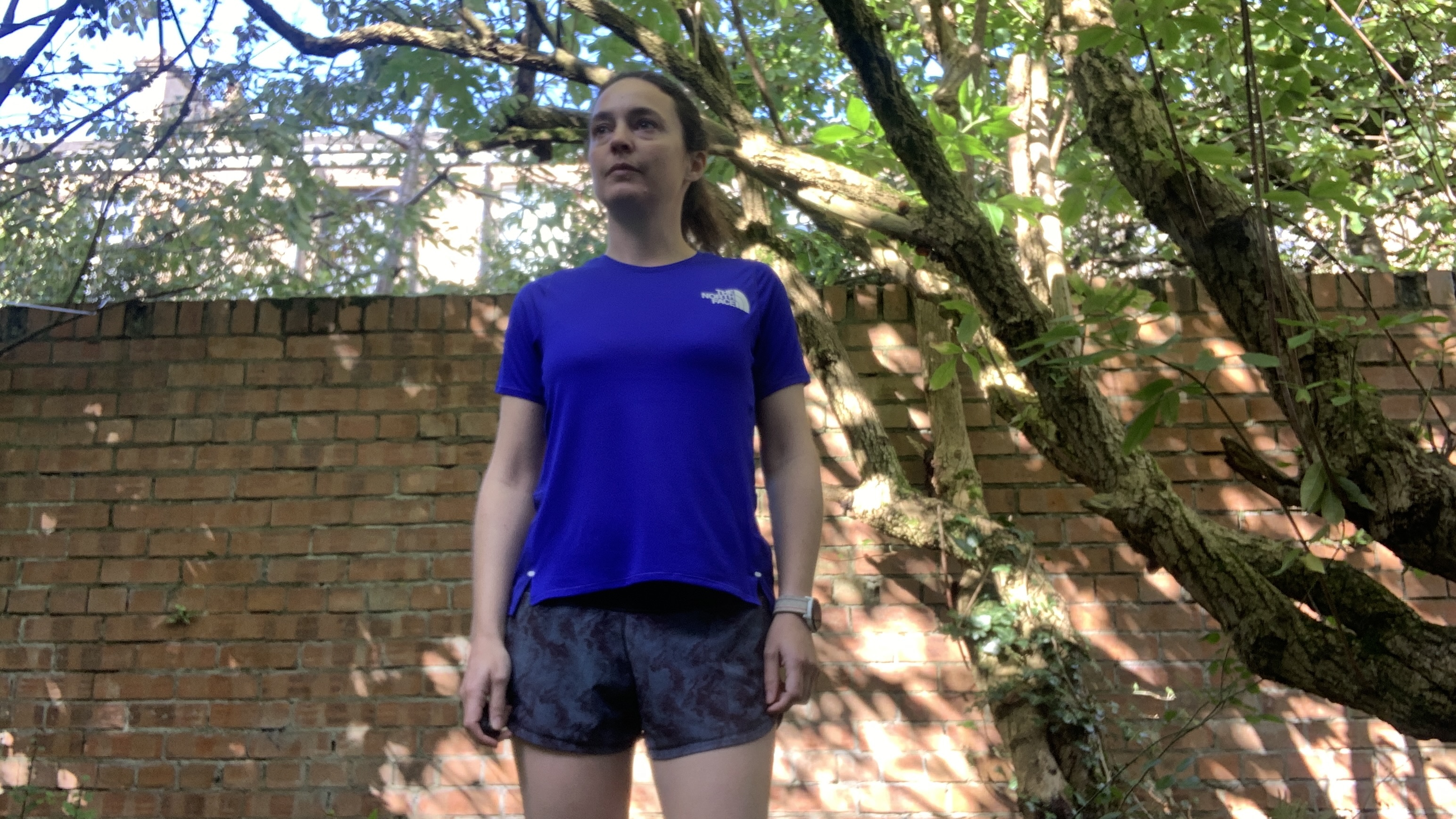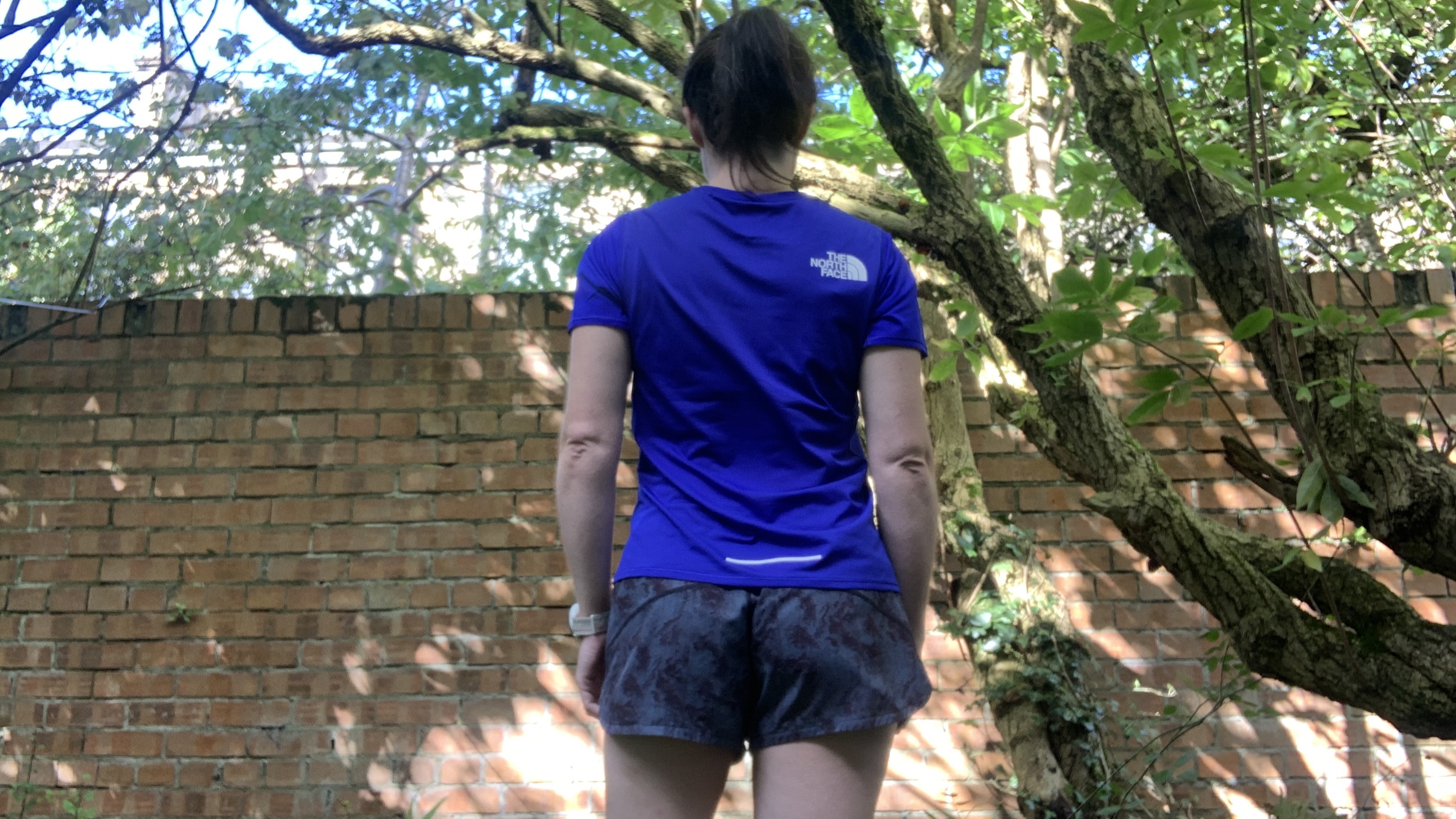
I’ve been trail running for years now, but in the last two years, early fall has brought a new routine. It looks like this: I travel to the French Alps to cover the iconic UTMB trail race around Mont Blanc, in my spare time I run on the best trails in Chamonix, and I come home even more excited than ever about trail running.
This year, American runner Katie Schide set a new women’s course record and kept pace with the elite men for most of the race. Schide is sponsored by The North Face, which meant she charged through three countries wearing the Summit Vectiv Pro shoes, but when it comes to her kit, what really stood out was her dazzling blue running shirt that turned out to be the new Summit Series High Trail Short-Sleeve in International Klein Blue.
International Klein Blue is a deep blue hue that was famously developed by French artist Yves Klein in Paris in the 1950s. The story goes that he spent years perfecting the shade and registered it in 1960, but never patented it. Inspired by the story of toiling for years to find the perfect formula, the Colorado-based outdoors brand released the shirt this summer, along with several other pieces of trail running kit including a long sleeve, running jacket and shorts.
To be honest, when I first heard about the line, I didn't pay it much attention. It's just a color, and after that misguided collaboration between The North Face and Gucci, I'm perhaps too quick to disregard announcements that feel like a gimmick. But some of that cerulean magic seems to have rubbed off during the big race.

When I returned home after the race, I was thrilled to discover my very own High Trail Short-Sleeve waiting for me. It’s certainly eye-catching, but would it do the job?
I don’t know whether it’s the excitement of seeing what women trail runners are capable of or the beautiful blue color, but I’ve managed to get 50 km in on the trails wearing this shirt in the last couple of weeks already. I might not have circumvented Mont Blanc in it, but I’ve worn it on long and short runs on steep and rolling forested trails of Scotland as well as the southwest of England, in late summer warm days and more recently, cool and wet weather. Here’s why it’s my new favorite running top:
1. It dishes up all-day comfort
For any clothes that I’m going to be exercising in, comfort is a big deal, but this is especially the case with my running tops, which can't chafe and ideally won't get too damp.
When I first pulled this shirt out of the packaging, it was silky soft to the touch and that’s a great start. It feels lovely against my skin even when I’ve got pretty warm and sweaty, and body-mapped fabric means it fits like a glove, while underarm gussets improve mobility, and bonded seams cut down on rubbing. I haven’t experienced any chafing at all in this shirt and I now understand why Schide looked so comfortable for most of her 22-hour race.
Obviously, a big contributing factor to comfort also lies in how breathable a running top is, and since Schide wore it for a hot race (it was around 80 degrees on race day) I was pretty sure it would let body heat and sweat escape. In fact, all I needed to do was hold it up to the light and I could instantly see how well it was going to breathe with me on the trail, and I’ve since confirmed that over the miles.
It’s made using FlashDry fabric, which I’ve tested before, and it’s truly amazing how dry it feels when I get back from a long, sweaty run. This means I can pick up the pace or run in warm conditions without a soggy shirt clinging to my back, even when I’m wearing a pack. If I stop for a breather I don’t instantly get chilled. If you’ve been running in a cotton shirt or, like me, merino wool for running, you’ll be amazed at how much more comfortable this top is and it’s hard to find fault with its performance.

2. It’s kinder on the planet
Planet-friendly designs are really important to me. I get a lot of enjoyment (and make a living) out of the time I spend outdoors and I don’t want my recreational activities to have a negative impact on the planet I love. Obviously, that’s a tall order – all manufacturing affects the environment in some way, whether that’s through carbon emissions, water usage or the end user discarding textiles into landfills. However, there are ways we can minimize our effect.
Clothing made from natural fibers such as merino wool are generally kinder on the planet than the synthetic fibers that make up this top – synthetic materials are ultimately made from plastic and never biodegrade. So I was pleased to see that the front and sleeves of this top are made using 100 percent recycled polyester. It still won’t biodegrade, but at least it’s using fibers that already exist, rather than producing more.
How we use our gear actually plays a bigger role in its sustainability than how it’s produced, and where I often struggle with synthetic tops in this regard is that after I run in them, they stink (and yes, I do understand it’s actually me that stinks). This means I have to wash them after almost every use, which in turn means more microplastics being shed into our water sources, and the shirt then degrades faster and ends up in the landfill sooner.
This top manages to not get as smelly as other ones I’ve worn, and in fact I’ve yet to have to wash it. It’s definitely time to get it in the laundry basket, but I’m pleased to have been able to get multiple uses out of it without getting sick of the smell of myself.

3. It’s just a good-looking top
Looks definitely come ahead of performance and sustainability for me, but I’m not ashamed to admit that I’m pleased that this shirt looks great on me. The slim (but not skin-tight) fit and split hem are really flattering, and in a small way, that makes me feel good when I'm out and about in this top.
The color? It definitely shows that years went into its artistic development. And unlike some other running gear I’ve tested from The North Face (like the Flex Mid Rise Tights), there’s no huge logo or in-your-face pattern. There’s just a small logo on the chest and rear shoulder that are reflective, so they serve the purpose of making me more visible when I set off at dawn and have to cross a few roads to reach the trails.
Is there anything I don't like about it? Honestly, it's a pricey piece of kit at $75 and while I know I'll get a lot of wear out it, I also know that does make it out of reach for many runners, but I can't argue with its performance.
Am I going to run the UTMB in this shirt next year? Absolutely not, but hopefully I’ll be following the runners once again and I’ll happily do so wearing brilliant blue.







